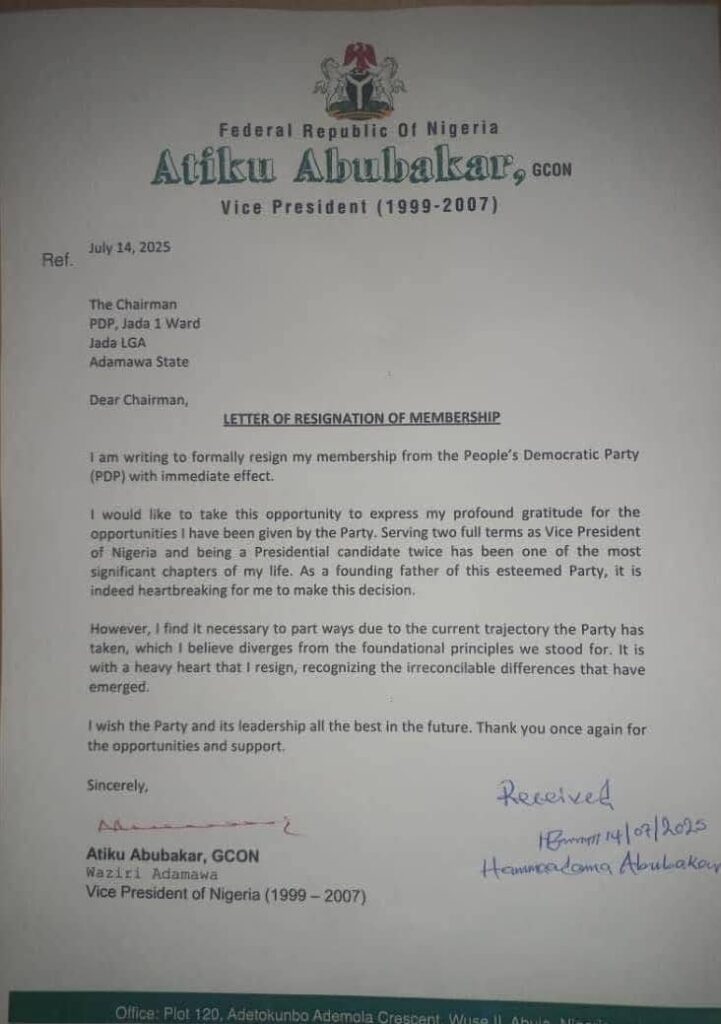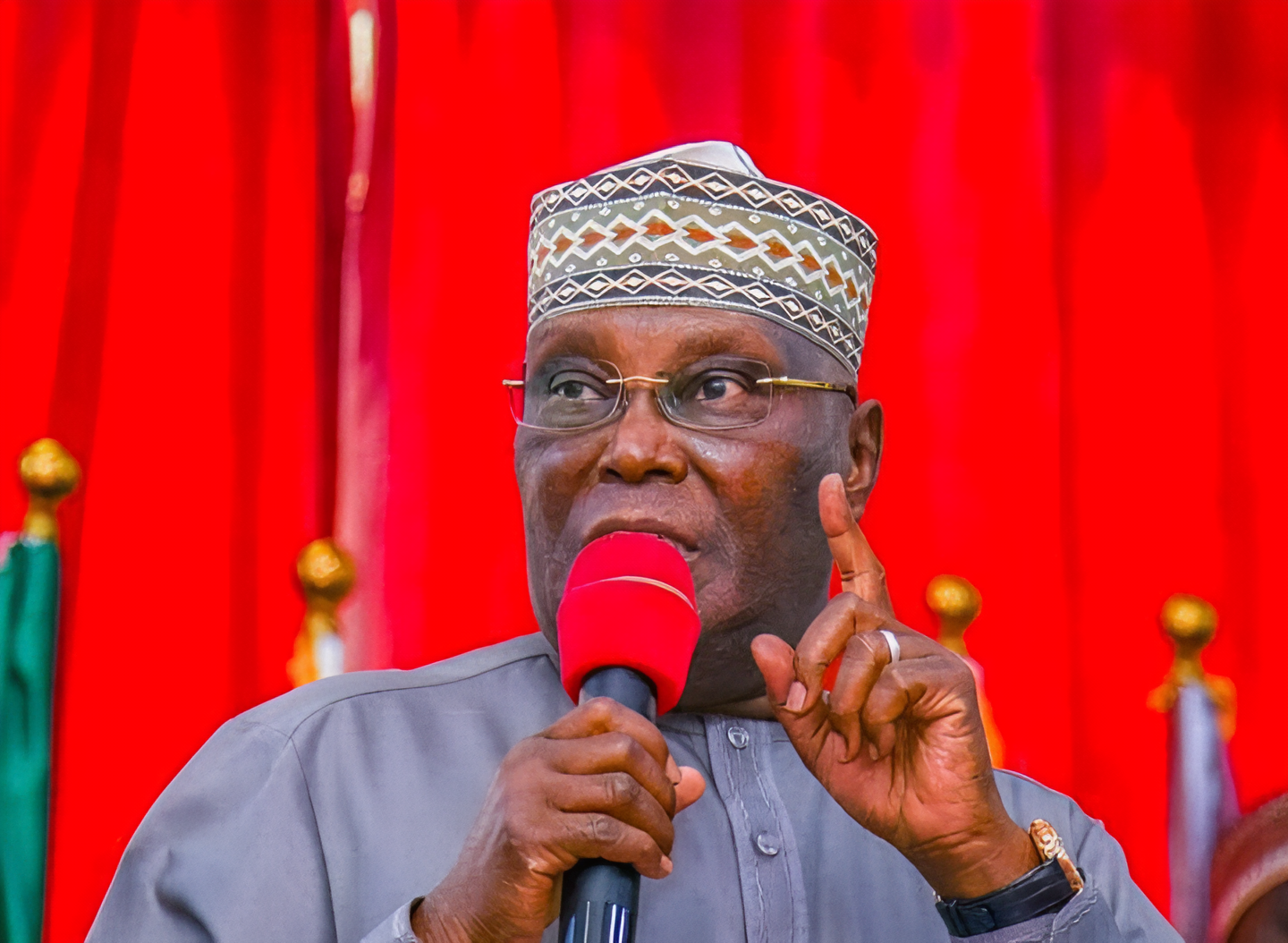Former Vice President Abubakar Atiku’s resignation from PDP has begun to generate massive political talking points ahead of the 2027 general elections.
On Wednesday, Atiku’s resignation from PDP hit the headlines after a letter dated Monday, July 14, 2025, and addressed to the chairman, PDP, Jada 1 ward, Jada Local Government Area of Adamawa State surfaced online.
Announcing the end of his decades-long affiliation with the PDP, Atiku cited irreconcilable differences with the party’s current trajectory, accusing it of straying from its founding principles of justice, equity, and service.

The letter reads in part: “I am writing to formally resign my membership from the People’s Democratic Party (PDP) With immediate effect.
“I would like to take this opportunity to express my profound gratitude for the opportunities I have been given by the party.
“Serving two full terms as Vice President of Nigeria and being a presidential candidate twice has been one of the most significant chapters of my life.
“As a founding father of this esteemed party, it is indeed heartbreaking for me to make this decision.
“However, I find it necessary to part ways due to the current trajectory the party has taken, which I believe diverges from the foundational principles we stood for. It is with a heavy heart that I resign, recognising the irreconcilable differences that have emerged.
“I wish the party and its leadership all the best in the future. Thank you once again for the opportunities and support.”
Pan-Atlantic Kompass reports that Atiku’s resignation from PDP follows months of reported tensions within the party exacerbated by internal power struggles and his alignment with a new political coalition, the African Democratic Congress (ADC).
Recall that the PDP’s turmoil has been brewing for years, exacerbated by factionalism and power struggles.
The party, formed in 1998 to challenge military rule, has struggled to maintain unity since losing the presidency to the APC in 2015.
Also, the crisis within the PDP escalated after the conclusion of the presidential primary of the party in 2022. Atiku won the party’s presidential ticket against agitation within the party that the ticket should be zoned to the South.
Following the development, key figures like Nyesom Wike, now a minister in the APC government, have been accused of undermining the PDP from within, while disputes over positions like the national secretary have further polarized its leadership.
Also, Atiku’s resignation coincides with his involvement in the ADC, a coalition gaining momentum as a credible alternative to the APC.
The ADC has attracted political heavyweights like the 2023 presidential candidate of the Labour Party, Peter Obi; former Governor of Rivers State, Rotimi Amaechi; and former Governor of Kaduna State, Nasir El-Rufai, ahead of the 2027 elections.
Launched on July 2, 2025, in Abuja, the ADC coalition, led by interim chairman David Mark and secretary Rauf Aregbesola, aims to unite opposition forces to unseat President Bola Tinubu.





